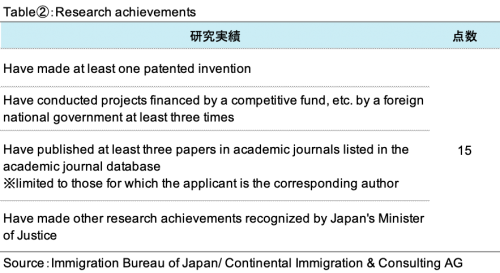Employing Foreign Bankers in Japan’s Financial Sector: A Comprehensive Guide
Employing Foreign Bankers in Japan’s Financial Sector: A Comprehensive Guide
The Changing Landscape of Talent Acquisition in Japanese Finance
The financial sector in Japan, encompassing banks, securities firms, and asset management companies, is increasingly opening its doors to foreign talent. This strategic move aims to diversify revenue streams within domestic divisions, strengthen overseas operations, and effectively handle the surge in cross-border transactions. Traditionally, Japanese financial institutions have primarily hired local graduates, nurturing them through in-house training programs. However, the growing complexity of the financial landscape has necessitated the inclusion of foreign professionals, particularly for senior banking and managerial roles.
Profile of Foreign Bankers in Japan
Foreign bankers employed in Japan typically boast impressive educational backgrounds, with degrees in financial engineering, law, economics, or MBAs from prestigious universities both within and outside Japan. When it comes to employment categories under immigration law, most fall under Category 1 (listed companies) or Category 2 (unlisted large enterprises), with a considerable number of them earning an annual income that subjects them to a source tax of 10 million yen or more, placing them in Category 2. Categories 1 and 2 generally benefit from relaxed scrutiny during visa application processes and require fewer documents.
Visa Options and Eligibility
The commonly anticipated visa for foreign professionals in this sector is the WORK VISA (GIJYUTU, JINBUNCHISHIKI, KOKUSAIGYOUMU VISA). However, given the educational and salary levels of individuals typically employed in the financial sector, many are likely eligible for the Highly Skilled Professional1-b visa, a superior qualification within the work visa category. Scoring 70 points or more on the Highly Skilled Professional visa’s point-based system enables employment under this status.



The Attractiveness of the Highly Skilled Professional Visa
Foreign employees in financial institutions are often alumni of well-renowned universities and holders of advanced degrees, which significantly boosts their chances of qualifying for the Highly Skilled Professional visa. Young professionals in this sector also tend to have relatively high incomes, a factor that substantially contributes to the points accumulated for visa eligibility.
Employing foreign staff under the Highly Skilled Professional visa offers numerous advantages, including the ability for senior bankers to bring domestic help from their home country or invite parents to Japan for childcare assistance (for children under seven years old). These perks enhance the overall attractiveness of positions for senior bankers and bankers alike, making them crucial considerations for employers.Above all, the Highly Skilled Professional visa allows for permanent residency after a minimum stay of one year.

For senior bankers or those in senior management, the Business Manager visa or the Highly Skilled Professional1-c visa may also be applicable. It is worth noting that senior bankers who do not establish a residence in Japan and instead opt for hotel stays during their time in the country may need to undergo special procedures and consult with immigration authorities, as hotels cannot be registered as residences under immigration law.
Inviting Prospective Employers to Reach Out
Financial institutions considering the recruitment of foreign staff are encouraged to reach out for consultation, ensuring a smooth and compliant hiring process within Japan’s evolving financial sector.Above all, the Highly Skilled Professional visa allows for permanent residency after a minimum stay of one year.
Continental has outstanding expertise in foreign visas for foreign and domestic financial institutions in Japan.We can also provide explanations to newly appointed HR personnel and direct guidance to home country HR and applicant employees (English only). We can also arrange for residence cards to be issued (in principle, employees do not have to take time off work).
Professional

Masakazu Murai
Immigration consultant, Financial advisor
He has 18 years experience in Investment Banking at Mitsubishi UFJ Morgan Stanley. He had provided financial advisory more than 500 entrepreneurs and senior management.
He currently supports many foreign entrepreneurs in Japan, taking advantage of the experience of an investment banker. He is the best expert of Business VISA in Japan.
Gyoseishoshi Immigration Lawyer
CMA(Japanese financial analyst license)
CFP (Certified Financial Planner)
MBA in Entrepreneurship


















